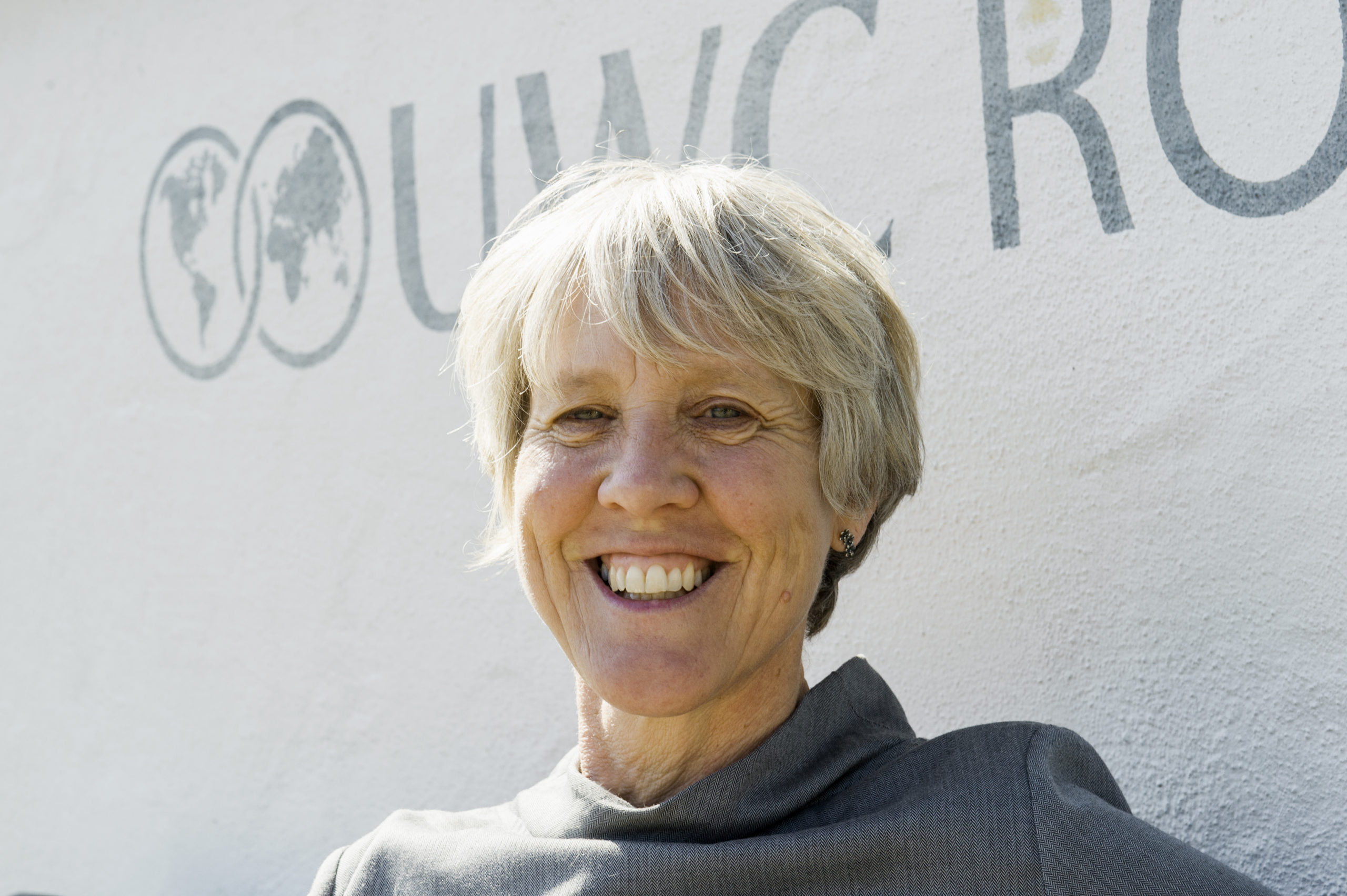“Teaching is so much more than the packaged delivery of information”

Today, on May 4th, on-site classes resume at UWC Robert Bosch College – after a 7-week-isolation period and a teaching online experience completely new to the College. Lydia White has been with RBC since its foundation in 2014. The English literature teacher and Atlantic College graduate was one of the colleagues who worked remotely, seeing her students only through Microsoft Teams. How has remote teaching worked for her? As teachers come back into their classrooms (with face masks and face shields) today, here’s a look back to the past weeks.
How are you personally dealing with the current situation?
With my 18-month-old daughter’s Kita closed and my partner working full time, dealing with the current situation has meant lots of planning, team-work and improvisation! At first I wasn’t sure how we would manage but it’s amazing how quickly all systems adapt to this strange new “normal”. On a personal level, when rooted in the every day, busy with tasks and responsibilities, it’s easy to forget the “reality” of the situation. I have even had moments of elation and triumph during the last few weeks when I realise that yes, we have managed another day! Then there are other disorientating and heavy moments where I am reminded of the darker realities of this pandemic worldwide.
Can you summarize your experience of teaching remotely?
At first, I was horrified at the idea of remote teaching. The lack of direct contact, the loss of all the interactive elements of the classroom and the idea of being sat in front of a screen for so long all fed into this. However, despite all these misgivings after a few days of preparing materials and getting to know tools such as Microsoft Teams, I realised that the opportunities for creativity, interaction and student support do exist on digital forms. It certainly takes some adjustment though. Not to mention a sharp learning curve; one that I am still riding! My colleagues and IT support from school were invaluable in this regard. I have also had to rely heavily on my student’s self-motivation and independent desire to learn – a characteristic that fortunately UWC students are especially known for. I understood early on that giving “normal” lessons that required my presence and a reliable internet connection could not be relied upon. Instead, I used a range of platforms to guide my students through online lesson plans with lots of resources, mini-tasks, guided analysis etc. Occasionally, we have had live “check-in” meetings where it has been invigorating to see people and share ideas, albeit on screen. Otherwise contact has been mainly via email and the interactive platforms via Teams. It has definitely been made easier having the majority of students together on campus. Highlights of the experience include discovering students working together, being sent recorded mini-performances and adaptations of the play we were studying. Setting creative work and tasks made up for some of the losses of the live classroom environment; it enabled us to go deeper. Reading my student’s creative writing in response to a text studied was also a source of inspiration and great satisfaction for me.
Your funniest teaching online moment?
Discussing tragedy and suffering in Euripides’ ‘Medea’ with a group of students whilst my daughter ate cornflakes in her high chair in the background was a surreal but sweet moment.
What have you missed most about being on campus?
I’ve missed many things about being on campus. Teaching is so much more than the packaged delivery of information; it is about the relationships that form and enable, the interaction between a group of people and a space, an atmosphere that is created for critical thinking, analysis and intellectual development. There are some aspects crucial to this that I have found hard to reproduce online. It has been challenging not having access to my student’s immediate reactions and responses, their questions. Hard too to not be able to make myself as available to them for emotional support at a time of such turbulence. Teaching is also about dialogue, the back and forth between us all, the private conversations before and after class, the joy of 10 out of 13 hands raised in response to a question. And of course, improvisation, the moment a student articulates something that takes you completely by surprise and it seems much wiser to follow that line of inquiry and leave the lesson plan for now. Most of all it’s much harder to laugh together, to be funny, to enjoy a joke! I miss laughing with my students and colleagues.
How have you stayed connected with the on-campus community?
Staying in contact with the on-campus community has had to take place online. I have appreciated the moments where we could come together so much – whether in virtual meetings or when meetings/events on campus have been shared with us. I have found myself poring over minutes of meetings in a way never done before, enjoying hearing the little details of life on campus, and feeling so proud and impressed with how the community is coping.

